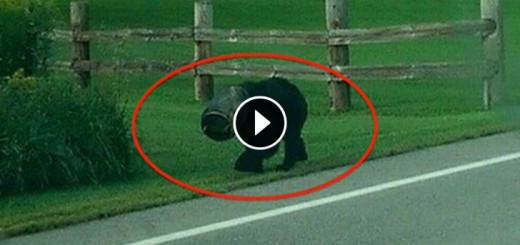If You Come Across a Bent Tree in The Forest, Start Looking Around Immediately
According to the national American Forests website, bent trees are a clear Native American trail markers.
Indians used to strap the trees down and allow them to grow so the bend became permanent.
The site explains that this method was popular with Native American tribes all across the land and that the form has stuck around years after the trees were bent as saplings:
“Native Americans would bend young trees to create permanent trail markers, designating safe paths through rough country and pointing travelers toward water, food or other important landmarks.
Over the years, the trees have grown, keeping their original shape, but with their purpose all but forgotten as modern life sprang up around them.”
However, not all bent trees are markers toward a certain direction. There are a few important details that you need to keep an eye out for when trying to decipher the differences.
Many of the bent trees you see while exploring the great outdoors are nature’s doing.
A vast majority of the trees bent by Native Americans decades and decades ago have a noticeable nose, or notch that juts out at the end of the bend. This was created by inserted a piece of the tree into a hole and allowing the tree to grow around it.
In addition to the nose, there’s another small detail that can help you differentiate nature’s wonder and man-made markers.
If you look at the top part of the inner bed, you’ll also be able to see scars from where the straps were placed when the trees were young!
Unfortunately, many of these trail marker trees are 150 to 200 years old – this means their lifespan is coming to a close and they are more and more likely to be destroyed by the expanding human population.
That’s why the Mountain Stewards website was created.
The site mapped out more than 1,000 bent trees all over the country and documented exactly where they were.
Hopefully people young and old rush out to see these incredible bits of American history before they’re gone!
Check out a real-life bent tree in Georgia in the video below! This is fascinating…




























